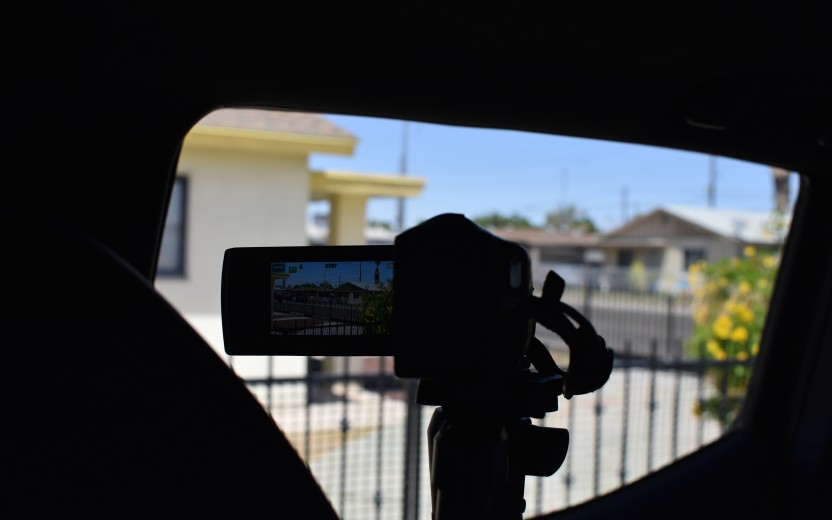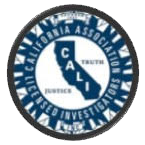Who Needs a Private Investigator for Child Custody Investigations? Understanding the Benefits of Hiring a Professional
Child custody battles can be emotionally charged and contentious affairs, with each parent fighting for custody of their children. In some cases, one parent may feel that the other parent is not fit to care for their children and may seek the assistance of a private investigator to gather evidence to support their claims. Private investigators can provide valuable evidence in child custody cases, but not everyone needs one.
A private investigator can be useful in a child custody case when one parent is concerned about the safety or well-being of their child while in the care of the other parent. Private investigators can conduct surveillance, gather evidence, and provide expert recommendations to help parents make informed decisions about their child's custody. However, it is important to note that not everyone needs a private investigator in a child custody case. In some cases, parents may be able to resolve their custody issues through mediation or negotiation without the need for a private investigator.
Understanding Child Custody Investigations
Definition and Purpose
Child custody investigations are conducted by private investigators to collect evidence that reflects the true circumstances of a child's living situation. The primary goal of child custody investigations is to ensure the best interests of the child are met, which includes determining the child's living situation, safety, and well-being.
Private investigators in child custody cases may collect evidence through various means, including:
- Surveillance: Private investigators may conduct surveillance to document the behavior and actions of a parent or caregiver. This can include photographs, videos, and audio recordings that may be used as evidence in court.
- Interviews: Private investigators may conduct interviews with family members, friends, teachers, and other relevant individuals to gather information about the child's living situation.
- Background checks: Private investigators may conduct background checks on parents or caregivers to uncover any criminal history, substance abuse issues, or other relevant information.
The evidence collected by private investigators can be used by attorneys and courts to determine the best course of action for the child's custody arrangement.
Legal Considerations
Child custody investigations must be conducted within the bounds of the law. Private investigators must adhere to state and federal laws regarding surveillance, privacy, and evidence collection. It is important to note that evidence obtained illegally may not be admissible in court.
Additionally, private investigators must be licensed and insured to conduct child custody investigations. It is important to verify the credentials of a private investigator before hiring them to ensure they are qualified to conduct the investigation.
Overall, child custody investigations are an important tool in ensuring the best interests of the child are met. Private investigators can provide valuable evidence to attorneys and courts, but it is important to conduct investigations within the bounds of the law and with the child's well-being in mind.
Key Players in Child Custody Cases
Parents and Guardians
Parents and guardians are the primary parties involved in child custody cases. They have the most at stake and are often the ones who initiate the legal proceedings. Parents and guardians are responsible for providing a stable and safe environment for their children, which is why child custody cases can be so contentious. In some cases, parents may enlist the help of private investigators to gather evidence that supports their claim for custody.
Family Lawyers
Family lawyers play a critical role in child custody cases. They represent the interests of their clients and work to ensure that the best outcome is achieved for the child. Family lawyers are responsible for preparing legal documents, conducting negotiations, and representing their clients in court. They may also work with private investigators to gather evidence that supports their client's case.
Court System
The court system is the final arbiter in child custody cases. Judges are responsible for making decisions that are in the best interests of the child. They consider a wide range of factors, including the child's age, health, and relationship with each parent. Judges may also take into account evidence gathered by private investigators or presented by family lawyers.
It is important to note that the court system operates under a strict set of rules and guidelines. Child custody cases can be emotionally charged and complex, which is why it is critical to work with experienced family lawyers who understand the legal system and can provide guidance throughout the process. For more information on the Myths of Divorce and Child Custody, read this article from Guymon Law, a top Family Law Firm located in Chandler Arizona.
When to Hire a Private Investigator
Signs You Need Professional Help
Child custody investigations can be complicated and emotionally charged. If you are experiencing any of the following signs, it may be time to consider hiring a private investigator:
- Your ex-spouse is not allowing you to see your child or is not following the custody agreement
- Your ex-spouse has a history of substance abuse, neglect, or abuse.
- You suspect your ex-spouse is involved in criminal activity that could put your child at risk.
- Your child is showing signs of physical or emotional abuse.
- Your ex-spouse has a new partner who may pose a danger to your child.
Evaluating Your Situation
Before deciding to hire a private investigator, it is important to evaluate your situation and determine if an investigation is necessary. Consider the following factors:
- The cost of hiring a private investigator. It is important to understand the fees involved and whether or not you can afford it.
- The potential impact on your child. An investigation can be stressful for a child, so it is important to weigh the potential benefits against the potential harm.
- The evidence you already have. If you already have evidence to support your case, a private investigator may not be necessary.
- The laws in your state. Laws regarding child custody investigations vary by state, so it is important to research the laws in your state before deciding to hire a private investigator.
Ultimately, the decision to hire a private investigator for a child custody investigation is a personal one that should be made with careful consideration. If you do decide to hire a private investigator, make sure to choose someone who is experienced and licensed in your state.
Benefits of Using a Private Investigator
When it comes to child custody investigations, there are many benefits to using a private investigator. These professionals are trained to gather evidence and information that can be used in court to support your case. Here are some of the benefits of using a private investigator:
Objective Evidence Gathering
One of the main benefits of using a private investigator for child custody investigations is that they can provide objective evidence gathering. Private investigators are trained to gather evidence in a way that is legally admissible in court. They can collect evidence such as photographs, videos, and audio recordings that document the behavior and actions of a parent. This evidence can then be presented in court to support your case.
Expertise in Surveillance
Private investigators are also experts in surveillance. They can conduct surveillance on a parent to gather evidence of their behavior and actions. This can include monitoring their movements, interactions with their children, and interactions with other people. This information can be used to support your case in court.

Access to Specialized Resources
Private investigators also have access to specialized resources that can be used in child custody investigations. For example, they may have access to databases that can provide information about a parent's criminal history or financial situation. They may also have connections with other professionals, such as psychologists or social workers, who can provide additional information about a parent's behavior and actions.
Overall, using a private investigator for child custody investigations can provide a number of benefits. They can provide objective evidence gathering, expertise in surveillance, and access to specialized resources. If you are involved in a child custody case, it may be worth considering hiring a private investigator to help support your case.
How to Choose the Right Private Investigator
When it comes to choosing the right private investigator for a child custody investigation, there are several factors to consider. Here are some key criteria for selection, tips for verifying credentials and experience, and an overview of the costs involved.
Criteria for Selection
The first step in selecting a private investigator is to ensure that they are licensed and insured. This will provide legal protection and ensure that the investigator is operating within the law. Additionally, it is important to consider the investigator's experience, reputation, and track record. A good investigator should have experience in child custody investigations and should be able to provide references from satisfied clients.
Verifying Credentials and Experience
Before hiring a private investigator, it is important to verify their credentials and experience. This can be done by checking their license and insurance, as well as their professional affiliations and certifications. It is also important to ask about their experience in child custody investigations, including their success rate and the types of evidence they typically collect.
Understanding the Cost
The cost of a child custody investigation can vary depending on the complexity of the case and the amount of time required. It is important to get a clear understanding of the investigator's fees and billing practices, including any additional expenses such as travel or equipment. A good investigator should be transparent about their fees and should provide a written contract outlining the scope of the investigation and the fees involved.
In summary, choosing the right private investigator for a child custody investigation requires careful consideration of their credentials, experience, and fees. By taking the time to research and verify potential investigators, parents can ensure that they are getting the best possible outcome for their child custody case.
The Investigation Process
Initial Consultation
The first step in a child custody investigation is the initial consultation. During this consultation, the private investigator will meet with the client to discuss the details of the case and gather information about the child and the parents involved. The investigator will ask questions to determine the scope of the investigation, including the specific issues that need to be addressed and the evidence that needs to be collected. The investigator will also explain the process and provide an estimate of the cost of the investigation.
Strategy Development
Once the investigator has gathered all the necessary information, he or she will develop a strategy for the investigation. This strategy will be tailored to the specific needs of the case and will be designed to collect the evidence needed to support the client's case. The investigator will determine the best methods for gathering evidence, such as surveillance, witness interviews, and background checks. The investigator will also determine the best time to conduct the investigation and the best ways to document the evidence.
Evidence Collection and Reporting
The next step in the investigation process is evidence collection. The investigator will use the strategies and methods developed during the strategy development phase to collect the evidence needed to support the client's case. This may include surveillance of the parents, interviews with witnesses, and background checks. The investigator will document all the evidence collected and provide regular updates to the client throughout the investigation.
Once the investigation is complete, the investigator will compile all the evidence collected into a comprehensive report. This report will include all the evidence collected, along with an analysis of the evidence and a conclusion based on the evidence. The report will be provided to the client, who can then use it to support his or her case in court.
Overall, the investigation process is a crucial part of any child custody case. Private investigators can provide valuable support to clients by gathering the evidence needed to support their case and by providing expert analysis and conclusions based on the evidence.
Legal and Ethical Implications
Adhering to Laws and Regulations
Private investigators must adhere to laws and regulations when conducting child custody investigations. They must ensure that their methods of investigation do not violate any laws, such as laws related to surveillance, wiretapping, and trespassing. Private investigators must also ensure that they do not interfere with ongoing legal proceedings.
In addition, private investigators must adhere to ethical standards set forth by professional organizations, such as the [The National Counsil of Investigation & Security Services] (https://www.nciss.org/content.aspx?page_id=156&club_id=58484&member_id=7318427&fs=). The NCISS Code of Ethics requires private investigators to conduct themselves with honesty, integrity, and professionalism. They must also respect the privacy rights of individuals and not engage in any activities that could be considered harassment or intimidation.
Maintaining Confidentiality and Privacy
Private investigators must maintain confidentiality and privacy when conducting child custody investigations. They must ensure that any information they gather is kept confidential and only shared with authorized individuals, such as attorneys or the court.
In addition, private investigators must respect the privacy rights of individuals. They must not engage in any activities that could be considered an invasion of privacy, such as installing hidden cameras or recording devices in private areas.
Private investigators must also ensure that any information they gather is obtained legally and ethically. They must not engage in any activities that could be considered entrapment or deception.
Overall, private investigators play an important role in child custody investigations, but they must adhere to laws and regulations and maintain ethical standards to ensure that their investigations are conducted legally and ethically.
Frequently Asked Questions
What are the potential risks associated with hiring a private investigator for child custody cases?
Hiring a private investigator to assist in a child custody investigation can be a helpful tool, but it is not without its risks. One potential risk is that the evidence gathered by the private investigator may not be admissible in court. Additionally, if the investigation is conducted illegally or unethically, it could harm the case of the parent who hired the investigator. It is important to carefully vet any private investigator before hiring them and to ensure that they are licensed and experienced in child custody investigations.
How much does it typically cost to hire a private investigator for a child custody dispute?
The cost of hiring a private investigator for a child custody dispute can vary widely depending on the complexity of the case and the services required. Some private investigators charge an hourly rate, while others may charge a flat fee. It is important to discuss fees and payment arrangements with the investigator before hiring them to avoid any surprises later on.
Is it legal to sue someone for employing a private investigator during a custody battle?
It is not illegal to employ a private investigator during a custody battle, but there are potential legal consequences if the investigation is conducted illegally or unethically. If the investigator violates any laws or ethical standards during the investigation, both the parent who hired the investigator and the investigator themselves could face legal consequences.
How can a private investigator contribute to a child custody investigation?
A private investigator can contribute to a child custody investigation by gathering evidence that can be used in court. This can include conducting surveillance, interviewing witnesses, and gathering documentation related to the child's living situation. Private investigators can also provide expert testimony in court and assist with strategizing the best course of action for the parent who hired them.
Are the findings of a private investigator considered admissible evidence in family court?
The admissibility of evidence gathered by a private investigator in a child custody case can vary depending on the circumstances. In general, evidence that is obtained legally and ethically can be admissible in court. However, it is important to note that the rules of evidence can be complex and vary by jurisdiction. It is always best to consult with an experienced family law attorney before relying on any evidence gathered by a private investigator.
What are the qualifications to look for in a private investigator specializing in child custody?
When hiring a private investigator for a child custody case, it is important to look for someone who is licensed and experienced in conducting investigations related to child custody disputes. Ideally, the investigator should have a background in law enforcement or a related field and should be familiar with the legal and ethical standards that govern investigations in family law cases. Additionally, it is important to choose an investigator who is discreet, professional, and has a good reputation in the industry.

-formatted.jpg)



